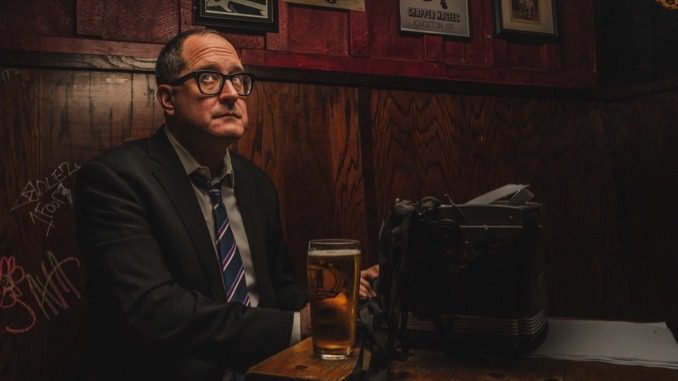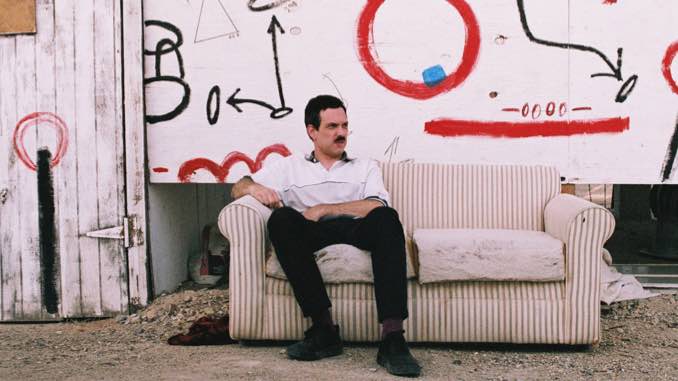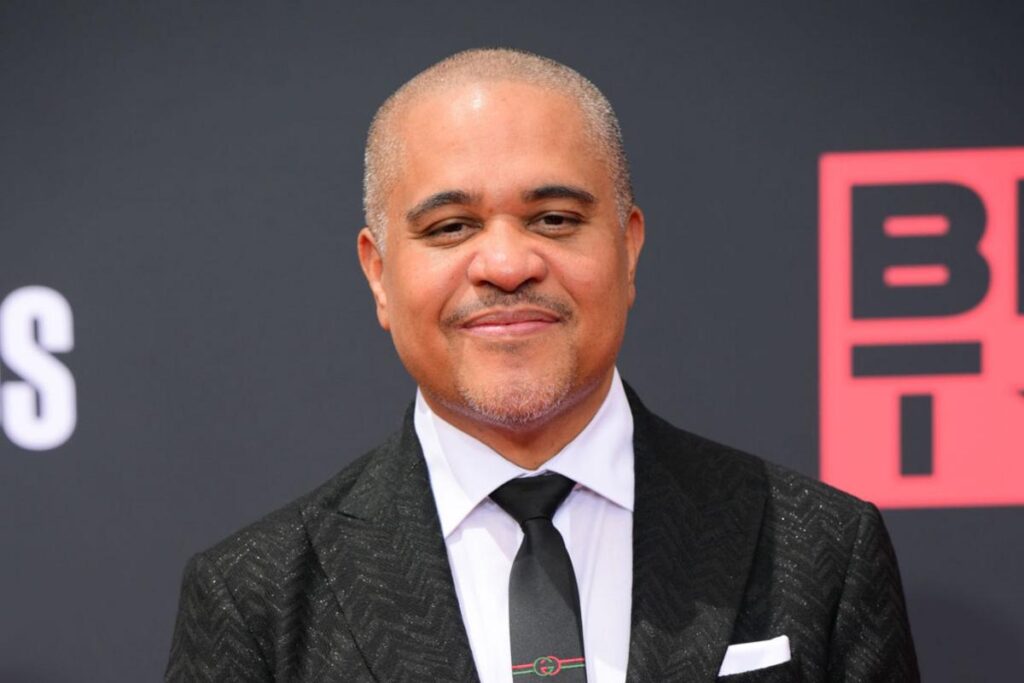Last week, The Hold Steady’s Craig Finn released his sixth solo album, A Legacy of Rentals. For songwriters of bands with similar stature and rabid fandoms, such detours away from the main event can tend to be greeted with a sense of indifference. But throughout the years, Finn has made the case that his abilities as a storyteller can stand on their own without roaring amplifiers and clanging barroom pianos.
In his main band, the narrative focus is on lost but youthful people kicking against the notion of growing old in a world that lived beyond their interconnected network of after-hours bars, house parties and all-ages DIY spaces. As Finn began to understand his perspective outside of The Hold Steady’s larger oeuvre, he started to write compelling sketches of everyday Americans on the ropes, desperate for larger meaning outside of what was being sold to them during commercial breaks.
As he recently explained to Paste, a difference between writing for each project is that “The Hold Steady songs are about people making bad decisions and suffering the consequences. My solo songs are about people trying to do the right thing, but things still aren’t working out for them.”
From his very first country-inspired solo release Clear Heart Full Eyes to his recent albums with current collaborator producer and multi-instrumentalist Josh Kaufman (The National, Bonny Light Horseman), Finn has created a whole unique world outside of The Hold Steady that deserves to be considered on its own merits. Here are his 10 best songs from his solo career.
10. “Not Much Left of Us”
Finn’s first album as a solo artist—the Friday Night Lights-referencing Clear Heart Full Eyes—was missing the focused creative energy that he has been able to harness with his current collaborator Josh Kaufman. But the loose, no-frills country feel of the album isn’t without its charms. The best moment on the record is the pedal steel guitar-and fiddle-drenched ballad “Not Much Left of Us.” The song is a meditation on accepting the flaws of someone you love after lust and time water down any sensible logic. Even though the relationship that is still standing after all the drama is bruised like a passion fruit, they’ll “cut off the black” and “feast on the rest.” Only a strong writer like Finn could find a metaphor for a love worth tending to that is as brutally honest, yet idealistic as that.
9. “It’s Never Been a Fair Fight”
Between Finn’s output with The Hold Steady and the release of I Need A New War, it’s hard to believe the man had time to write and record much that wouldn’t find a home on a proper album. But last year, he released a B-sides collection titled All These Perfect Crosses which comprised all of the material that didn’t make that record. The standout of all of these tunes is “It’s Never Been a Fair Fight.” It’s understandable why the song may not have made the album: Musically, it seems to be caught somewhere in between the bar-band exuberance of The Hold Steady and the ’70s songwriters he draws inspiration from on his solo records. Two of the classic THS Bingo options are there: Craig mentions his history in the hardcore scene and the drugs that ruined the vibrant people involved in it. Finn talks about a specific musician who couldn’t make it through to the other side. People at the funeral talk about his “joie de vivre,” but he just wishes they’d all been there when his problems started to emerge. “Yeah, I knew he was hurting / I was not exactly walking in bright lights,” he explains, “Yeah, I knew it could happen / It’s never been a fair fight.”
8. “Newmeyer’s Roof”
For all of his weeding out fake scenesters and calcification from hard drugs, you’d think that Finn would choose cynicism over curiosity. In Faith in the Future’s “Newmeyer’s Roof,” he practically spells that out for you: “No I’ve never been crucified / I’ve never suffered and died / I’ve never been shot / But I’ve been lied to a lot,” he postures underneath the song’s locomotive rhythm. But as the song’s story unfolds after publicists pick up Finn’s lunch to coax The Hold Steady into signing a deal, he and his friend Thomas Newmeyer enjoy some beers on his roof. As they’re up there, they get an elevated view of the planes hitting the Twin Towers. Newmeyer talks to the cops, throws out the theory that the whole thing is an “inside job,” and later observes that “the more you destroy, the more that you make.” It’s then that the fog of apathy is lifted from Finn and he turns angry at Newmyer’s indifference. “Look at these mountains / Look at these trees / Tom, there must be something you believe,” he argues. Being contrarian just for the sake of it isn’t virtuous, and from that moment on, Finn longs to root for redemption when he knows it’s possible.
7. “Messing with the Settings”
On “Messing With the Settings,” off Finn’s fantastic new album A Legacy of Rentals, he pulls off a similar narrative bait-and-switch that he presented in the Hold Steady classic “Sequestered in Memphis.” Much like in that song where you slowly understand that the character is in the middle of being interrogated, there’s more to this song’s narrative than initially meets the eye. Finn’s character tells stories of an older friend named Rachel who, like him, just can’t seem to do right. She calls him her “partner in crime” because they’re not “supposed to be in the taverns.” Finn’s protagonist had his license stripped after a DUI and Rachel, who is 12 years older, mentions offhand that she spent the 1980s “trying to hold onto her baby.” Finn’s character eventually reveals that these stories are being told as a eulogy for his friend who gave it her best. The chorus is a line that Rachel once told him at their lowest point: “At sundown it feels like I’m riding a train I’m not on,” she said. As Finn and guest vocalist Cassandra Jenkins sing those lines together as more of Rachel’s life is revealed, the pain and disappointment are hard not to relate to. Nothing can save us from those quiet moments of self-reflection, thinking about our fuck-ups as another day slides away. Having a friend who understands can make all the difference.
6. “Her with the Blues”
There’s a narrative about living in New York City that is often sold to people glorifying the grime and icy-cold disposition you need to get ahead. “If you can live here, you can live anywhere,” says the old cliche—most likely penned by some heartless capitalist who never paid for subway fare with loose change. But what about the people who are forced into their circumstances, whether bound to their overpriced shoebox apartments with no funds for upward mobility or worse, forced to live on the streets. In “Her With The Blues” from I Need a New War, Finn breaks the facade of the navel-gazing tourist basking in the grit of a city that only looks favorably on the privileged. The character he follows longs to be a part of the NYC parties they only knew from TV, but instead lives in Koreatown, paying “ too much for what it is.” But the shine is still there even if it can unknowingly reek of schadenfreude. “You with the camera / Backpack and walking shoes / Taking pictures of garbage cans /This is where people live,” he sings. If you’re not careful, it could happen to you.
5. “Preludes”
It’s easy to imagine how Hold Steady guitarists Tad Kubler and Steven Selvidge would morph the catchy keyboard hook in “Preludes” into soaring, Thin Lizzy-style harmonized leads. But that would be missing the point of how Finn and Kaufman operate. The spare instrumentation on the We All Want The Same Things track shuffles with enough force to propel Finn’s story about how facing the bottom is the best way to meet your maker. Sobering moments for those drinking away their circumstances are sometimes only brought about with divine intervention, and that’s exactly what happens to Finn’s once-hopeless protagonist here. After finding himself back home in St. Paul after his hopes and dreams dried up, he starts hanging out with guys from the Northeast who are forced to ride their bikes to the Market. “Fish take to water / But licenses they get revoked,” he explains. As he begins to mirror his peers, he’s given a second chance before he drunkenly gets behind the wheel. “??I got stuck in a snowbank / I was too drunk to drive to Edina,” he sings, flabbergasted, “Right there is proof of my faith that God watches us.” Later, not fully ready to stop tempting fate, he finds himself drunk on the trails by the river when he gets jumped, knocked out and tossed into the water by an armed gunman. The mud in the river is too heavy to allow him to float too far south and he’s saved by some campers whoe spot his limp body. They give him coffee as he describes his attacker, then patch up his wounds and show him a “place to get sick.” Sure, these are the only two strikes for this character that we know about. But something tells us he should’ve struck out a long time ago. The lord works in mysterious ways.
4. “Magic Marker”
In the midst of the Trump presidency, there was a tendency to over-analyze why certain demographics would choose to sell out their best interests to a power-hungry charlatan. In the cases of many working-class Americans, the luxury of worrying about candidates on both sides of the aisle doesn’t crack the top 25 on their anxiety checklists—no matter the election. In “Magic Marker,” an early standout from Finn’s 2019 masterpiece I Need A New War, he tells the story of a Desert Storm veteran left rudderless as he assimilates back into civilian life. Letting go of “the war” isn’t easy, and he finds community amongst the lost souls who close down the bars and head for something stronger at a nearby “after hours” house. The following summer, he does a job that’s “kinda strange” for some unsavory character he met along the way, which nets him 16 grand. After some poorly calculated risks leave him broke and with a broken face, he heads back home with his tail between his legs to work at his uncle’s hardware store. And 20 years down the road, that’s where he still is. But what matters is that he’s trying hard to stay out of trouble. The people in town refer to his scars he got from his reckless days as being from “the accident,” and when the topic turns to politics, the 2016 election couldn’t be further from his mind. “Everybody’s talkin’ about the president / and me, I’m never sure what I should say,” Finn sings as the song’s plodding shuffle explodes into a breakdown aided by jubilant horns. The protagonist rides around town with the same magic marker he always keeps with him, writing down the name of the girl he lost when life moved too fast for him to find steady footing. In “Magic Marker,” Finn forces us to remember how the disparity of wealth and advantages between the one-percent and the rest of us is the difference between making choices out of informed curiosity and desperation. Why would the character have anything to say about the election? It’s enough to be on the straight and narrow after what he’s been through.
3. “Maggie I’ve Been Searching for Our Son”
Finn’s 2015 album Faith in The Future was the first to crack open what would make his solo career its own special thing outside of The Hold Steady. In the album’s opener “Maggie I’ve Been Searching For Our Son,” Over a freight-train rhythm in the vein of Johnny Cash, Finn takes on the first-person narrative of a nameless man trying to reconnect with an old love, seeking their son who had disappeared. He tries to get her to pick up the newspaper to see “stories and the pictures” of a kid who recently brought a gun into a movie theater. Did their son do the shooting? Was he made into a horrifying statistic? Finn’s character doesn’t say. What he does do is try to reassure Maggie that after a few rough years since their separation, he is on the right path to finding out what happened to their boy. He asks her if she is still down south, and tiptoes around whether she is still “strung out.” He catches her up on his various travels throughout the country that led him to his newfound clarity—“It was warm in Arizona / It was cold in Colorado,” he sings. He tells her about a desert commune he was living in for a couple of years with a guy “who said he was our savior.” It was all too good to be true, of course, as he enslaved the women and turned the male followers into “soldiers,” and it all resulted in a Waco-like standoff with the ATF. It was then that he realized it was their child that was in need of saving. He realizes now that even if there’s a “darkness in his body,” he can still turn it around and search for the son they neglected in both of their failed pursuits for higher meaning. Finn uses the framework of how easily the bereaved are taken advantage of by false prophets to showcase an all-too-common form of tragedy that is uniquely American.
2. “God in Chicago”
Over the years, Finn has established himself as one of rock and roll’s great storytellers. He creates scenarios with vivid depictions of characters that are so full of life and lived-in experiences in his music that is generally uncommon outside of hip-hop. This quality has never been more evident than on the somber We All Want the Same Things centerpiece “God in Chicago,” he delivers a concise, yet detailed short story that would make George Saunders proud. The song’s frankly spoken opening lines set the scene for the cinematic adventure that’s about to ensue:
Her mom found her brother
Then she found the container wrapped up in a newspaper
Stuffed in a duffel bag with hockey pads and seven grand in rubber bands
We didn’t speak at the service but later a message from a number that wasn’t familiar said
“Hey it’s Charlie’s sister
Would you do me a favor?
There’s unfinished business
It’s roughly the size of a baseball”
I said I wasn’t totally sure, but yeah I could probably call someone
Finn’s character in the song makes a deal to sell off the contraband with a loose connection—”Wayne from Winnetka”—from his college days. The only hitch is that he would have to take a trip to Chicago to make the handoff. He explains it all to Charlie’s sister and they make a pact to split whatever Wayne gives them. Rather than sit at home consumed with grief, she decides to tag along for the drive as they set out from St. Paul early the next morning. The drive is tense, but they sing along to a warbling cassette of Led Zeppelin III. Once they deliver the payload, it’s all over in an instant. “This isn’t the movies,” he says. With the weight of Charlie’s burden lifted, they see “God in the buildings” of the city. Sharing this secret—and a hefty cut of the money—they drink their way through Chicago, kissing on the corners and in corridors, and drunkenly taking off each other’s clothing back in their room at the Hyatt. “We all want the same things,” he says, in their pursuit to lift their grief. But the song’s true emotional haymaker comes in the song’s final verse, when the hungover couple bound by this tragedy realizes their fantasy stops as soon as they see the St. Paul skyline on the drive back home. The song’s near formless construction veers on the pristine slowcore of fellow Minnesota natives Low, with Finn’s spoken delivery mirroring the inconvenient circumstances of his characters. Even though they come out richer on the other side of this quest, there was no glory in the deal that went down. Finn makes you feel their loss of dignity with each emotionally numb exchange.
1. “Something to Hope For”
If you have ever been involved in a serious accident that caused some lasting and debilitating damage to your body, you know that it can be a daily dart throw deciding where you direct your blame and anger. Was it the person who technically did this to you that should be standing on trial? Or were you yourself to blame for being in the wrong place at the wrong time? Sometimes, you just need a voice of reason to tell you that none of it was your fault. In Finn’s masterful “Something to Hope For” from I Need A New War, he takes on the persona of a personal injury lawyer doing just that to his prospective client named Joanie, who’s on the other end of the phone. Rather than slapping on an ill-fitting suit and playing a greasy ambulance chaser or an overworked public defender with a three-ton caseload binder, Finn does the unthinkable here by playing Joanie’s legal guardian angel with a heart of gold—or at least, that’s as much as he lets on. “Joanie, I was calling just to tell you that I’m going to be calling / I know you hate to be surprised / I want you to be prepared,” he says, introducing himself before going into his sales pitch. He explains that perhaps the doctor who botched Joanie’s procedure is back in town and practicing, and that the opportunity for legal action might be open again. She tells him about the crash that left her disfigured, and the meager settlement from the state and from the guy behind the wheel. He knows that different lawyers have passed her file around with little results. He knows she’s been hurt so much that she’s bored, but he assures her he “wants to give her something to hope for.” We learn that even though Joanie has a little bit in her pocket to keep up with the “payments” and manage the “pain,” she becomes jaded and starts to spiral in the house she bought up in the mountains to get away from it all. The physical and mental pain come back in waves, and you can sense that the scenario breaks Finn’s heart. It’s this resilient empathy that makes the character worth taking a chance on. He isn’t here to chase headlines or courtroom glory—he’s here to make those bastards pay. “Joanie, I’m going to take care of you,” he sings, “I want to give you something to hope for.” It’s the perfect summation of the empathy and understanding Finn has for those caught beneath the wheels of the American dream.
Pat King is a Philadelphia-based journalist and host of the In Conversation podcast at Ears to Feed. He releases his own music with his project Labrador and is a tireless show-goer and rock doc fanatic. He recently took up long-distance running, which he will not shut up about. You can follow him at @MrPatKing.
Listen to Finn’s 2015 Daytrotter session below.




